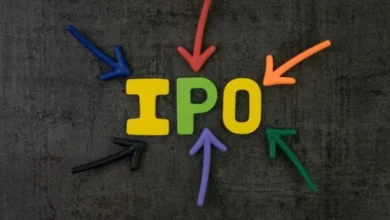The top ten defaulters owing banks Rs 40,825 crore
The top 10 willful defaulters in India owing banks a total of Rs 40,825 crore as of March 31, according to the Ministry of Finance. According to the Ministry, four of the 10 fugitive economic offenders have already been deported or extradited to India.
As of March 31, the top 50 willful defaulters owing banks a total of Rs 87,295 crore, with Gitanjali Gems Ltd., controlled by Mehul Choksi, the uncle of fugitive economic criminal Nirav Modi, accounting for more over 10% of the outstanding dues.

Gitanjali Gems, owned by fugitive Mehul Choksi, is the largest willful defaulter, owing Rs 8,738 crore, followed by Era Infra Engineering Limited, which owes Rs 5,750 crore, REI Agro Limited, which owes Rs 5,148 crore, ABG Shipyard Limited, which owes Rs 4,774 crore, and Concast Steel and Power Limited, which owes Rs 3,911 crore.
Vijay Mallya, Nirav Modi, Nitin Jayantilal Sandesara, Chetan Jayantilal Sandesara, Dipti Chetan Jayantilal Sandesara, Hitesh Kumar Narendrabhai Patel, Junaid Iqbal Memon, Hajra Iqbal Memon, Asif Iqbal Memon, and Ramachandran Vishwanathan are among the major figures in the bank scam.
According to the Reserve Bank of India (RBI), SCBs have written off a total of Rs 10,57,326 crore during the previous five fiscal years.
According to the Finance Ministry, total assets worth Rs 15,113.02 crore have been seized and returned to public sector banks under the Prevention of Money Laundering Act.
Furthermore, assets totaling Rs 873.75 crore have been seized in respect of the abovementioned FEOs under the Fugitive Economic Offenders Act, 2018 (FEOA).
Banks reach a compromise deal
Back in 2007, the RBI told the Indian Bank Association (IBA) that banks might engage into compromise agreements with willful defaulters/fraudulent borrowers without consequence.
There are mechanisms in place that allow banks to reach compromise agreements with borrowers who are classified as fraud or willful defaulters.
However, compromise settlement is not a privilege granted to borrowers, but rather a discretion granted to lenders based on their business judgements.
According to a recent RBI circular, regulated entities (banks) may enter into compromise settlements or technical write-offs on accounts classified as fraud or wilful defaulter without prejudice to the criminal proceedings against such borrowers, but all such proposals must be approved by the board.
As a general rule, for regular situations of compromise settlements, a 12-month cooling-off period has been imposed.






